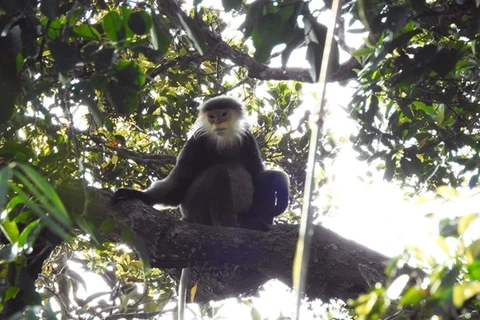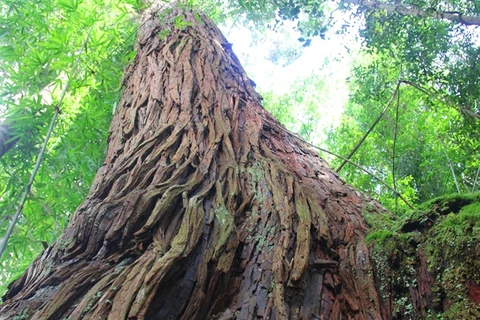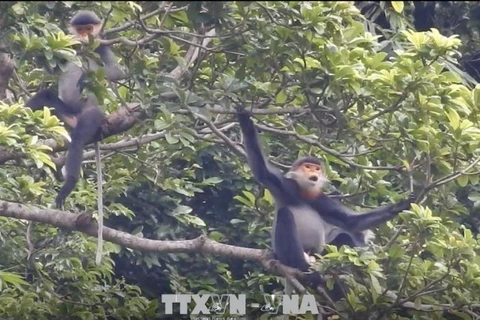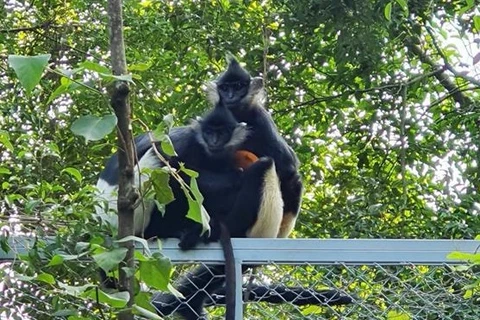 An individual grey-shanked douc langur (Pygathrix cinerea), one of the world’s 25 Critically Endangered primates, is found living in a forest of Quang Nam Province. (Photo courtesy of Ai Tam)
An individual grey-shanked douc langur (Pygathrix cinerea), one of the world’s 25 Critically Endangered primates, is found living in a forest of Quang Nam Province. (Photo courtesy of Ai Tam) Hanoi (VNS/VNA) - Since the Government’s decision on action plan for the protection of the primate species in Vietnam was issued in 2017, a total of 684 endangered douc langurs, including 86 grey-shanked douc langurs (Pygathrix cinerea), one of the world’s 25 Critically Endangered primates, have been captured by rangers and authorities in 80 illegal hunting and wildlife trafficking cases.
However, a report by the ENV, an NGO focused on wildlife protection, showed that only 30 per cent of total poaching violations in Vietnam were discovered, while 70 per cent were unknown, meaning that the number of the langurs hunted in the forest was unclear.
Biologists, conservationists and experts shared the report at a conference on the conservation activities on endangered primates in the central provinces Quang Nam, Quang Ngai, Binh Dinh, Phu Yen, Gia Lai and Kon Tum, and discussed further actions from 2025 to 2030.
They agreed that illegal wildlife hunting, the expansion of coffee and log farms, poor management and planning on the protection of the primates species in the six provinces had been raising threats to the conservation of endangered primates.
Expert Ha Thang Long, head of the representative office of the Frankfurt Zoological Society in Vietnam, said urgent action was needed for more effective protection of the langurs from becoming extinct in the six provinces where from 2,200 to 2,500 individuals are living in the primary forest or strictly protected nature reserves.
A report from the Ministry of Agriculture and Rural Development unveiled that the central region lost 34,000ha of forest due to illegal logging and land clearance for coffee, rubber and acacia plantations.
The forested area had dropped by 180,000ha, of which 112,000ha had been destroyed or occupied by the expansion of other crop plantations, and 37,000ha for building hydropower plants and roads between 2010-15, the report detailed./.























